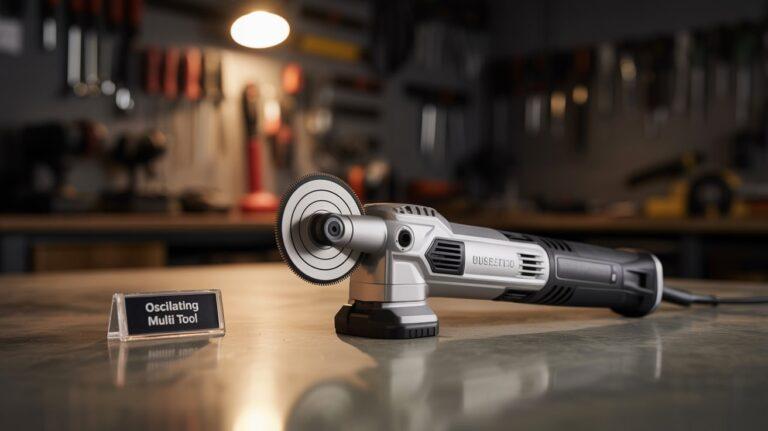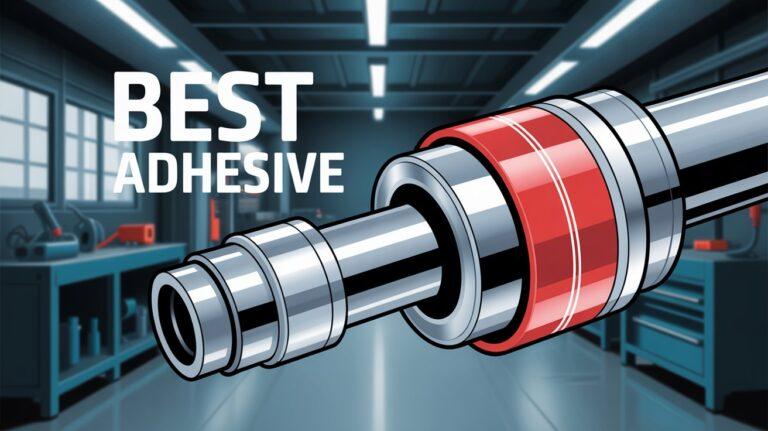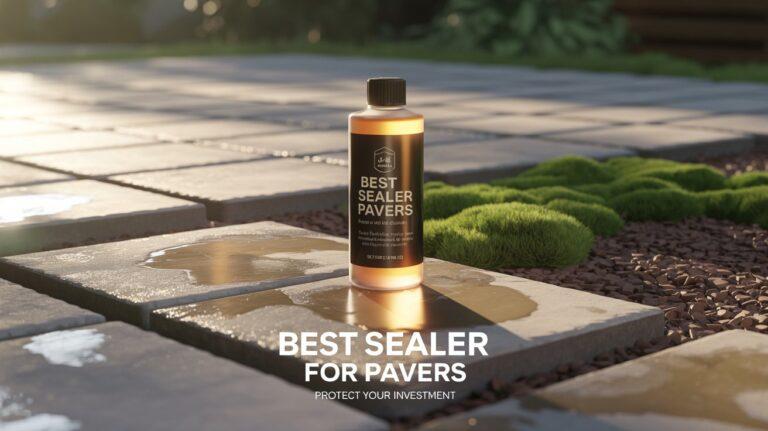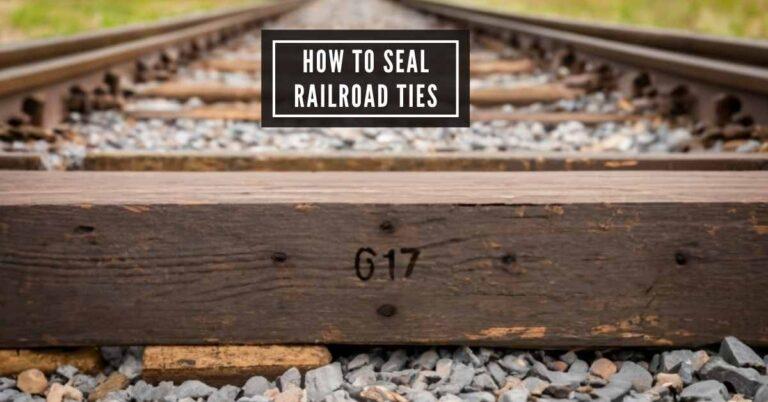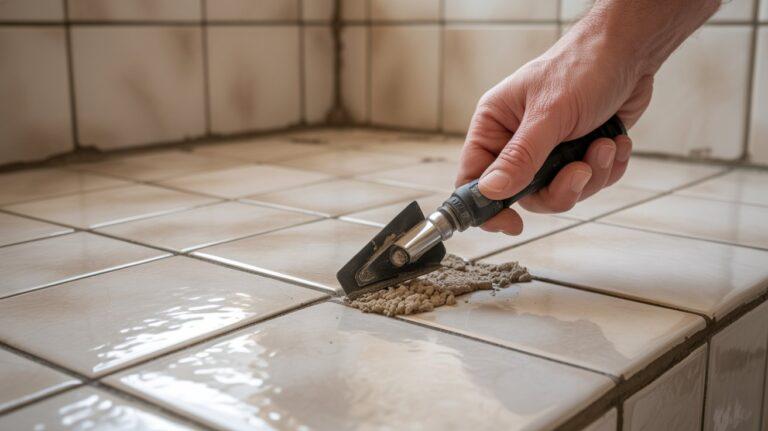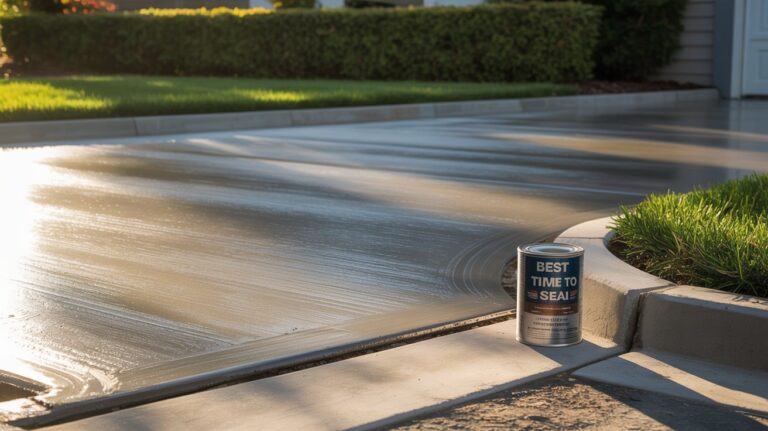What Can I Use Instead of Sealant: Amazing Secrets Happened
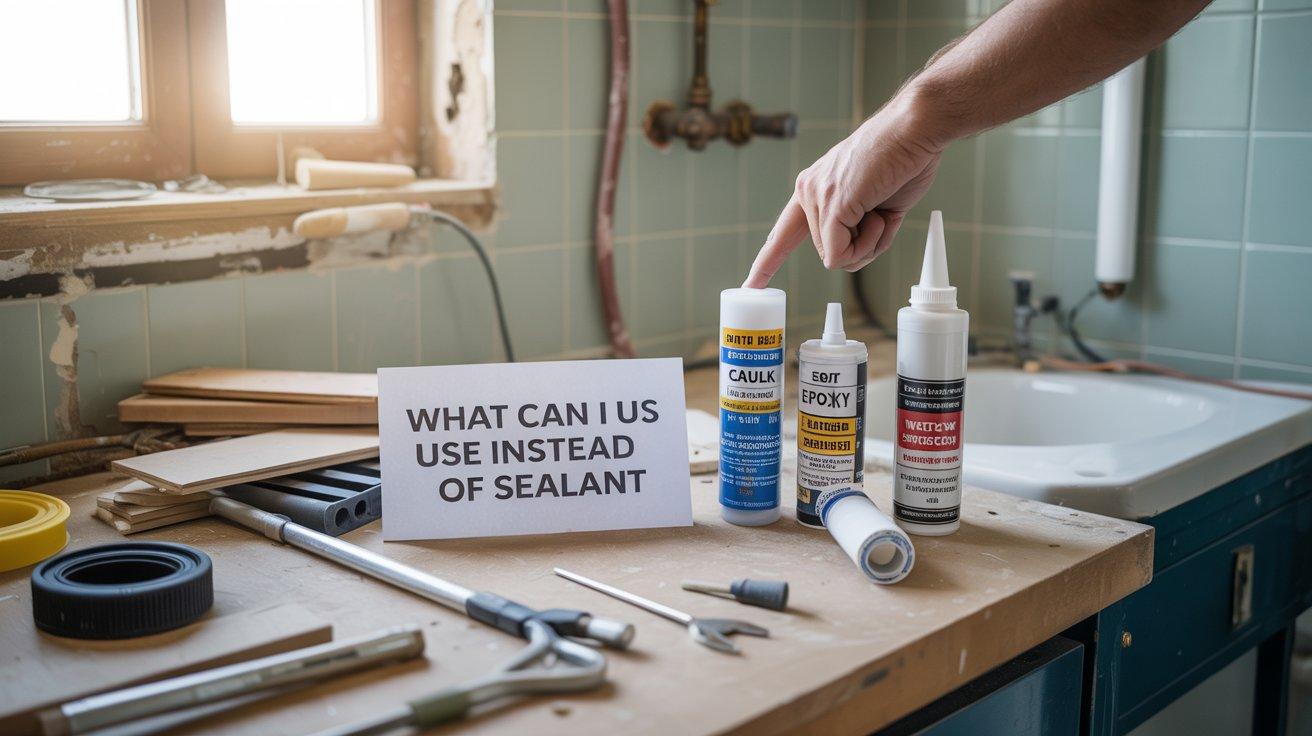
Sealants are popular for sealing and protecting surfaces. But what if you don’t have one? What Can I Use Instead of Sealant Amazing Secrets Happened gives you smart safe and easy choices learn fast proven tricks now and act today for results.
Finding alternatives to sealants can be essential in many situations. Maybe you ran out of sealant, or you prefer a more eco-friendly option. Perhaps you’re looking for a DIY solution. Whatever the reason, there are many other materials you can use.
These alternatives can be just as effective, depending on your needs. From common household items to specialized products, the options are diverse. Exploring these can save you time and money. Plus, they might offer benefits that sealants don’t. So, let’s dive into some practical substitutes for sealants and see which one works best for you.
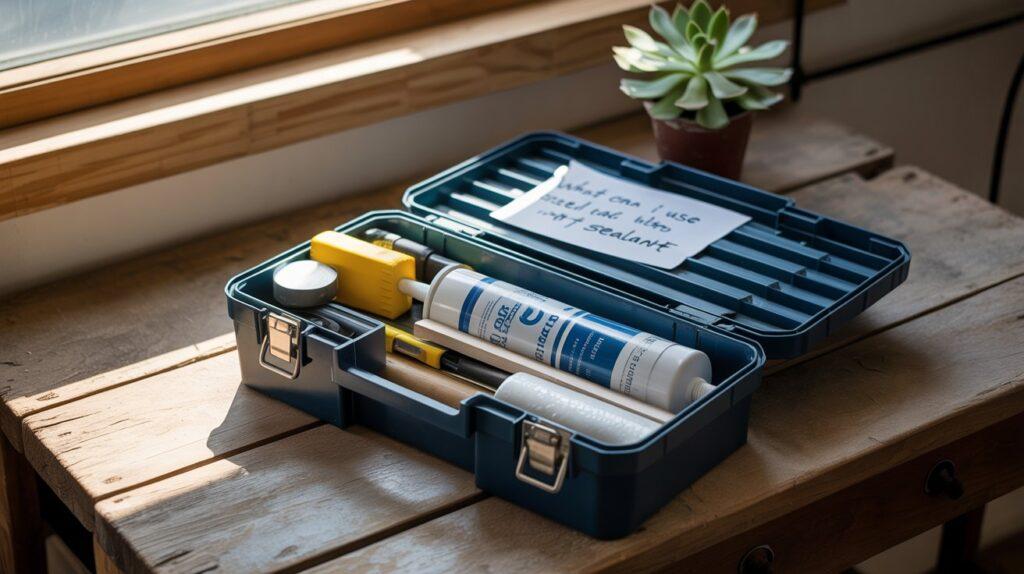
Introduction To Sealant Alternatives
Sealants are used for a variety of purposes. They fill gaps, prevent leaks, and provide protection. However, not everyone prefers to use traditional sealants. They can be expensive, difficult to apply, or contain harmful chemicals. This section explores alternatives to sealants. These options are effective, safer, and often more affordable.
Why Seek Alternatives
There are several reasons to look for sealant alternatives. Traditional sealants may contain toxic substances. These can harm your health and the environment. Besides, some sealants are tough to apply. You might need special tools or skills. Lastly, traditional sealants can be costly. This is especially true for large projects.
Common Uses Of Sealant
Sealants serve many purposes. Here are some common uses:
- Filling Gaps: Sealants fill gaps in windows, doors, and walls.
- Preventing Leaks: They stop water from leaking through roofs, pipes, and joints.
- Protection: Sealants protect surfaces from moisture and damage.
- Insulation: They help insulate homes by sealing cracks and openings.
Each of these uses has suitable alternatives. For instance, you can use weatherstripping for windows and doors. It is easy to apply and effective. For preventing leaks, consider waterproof tapes. They are durable and versatile. To protect surfaces, use waxes or oils. These are natural and safe. For insulation, spray foams are a good choice. They fill gaps and insulate well.
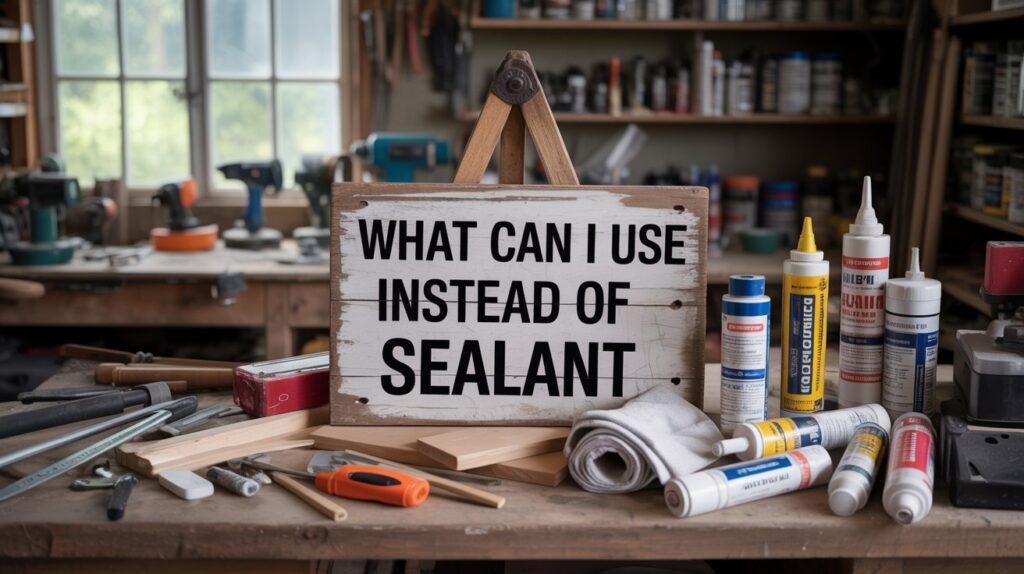
Silicone Caulk
When working on home improvement projects, finding the right alternative to sealant is essential. One popular option is Silicone Caulk. This versatile material offers a range of benefits and can be used in various applications. Let’s explore its advantages and best use cases.
Advantages
Silicone Caulk provides several key advantages:
- Waterproof: Silicone caulk is highly resistant to water. It prevents leaks and moisture damage.
- Flexible: It remains flexible even after curing. This makes it ideal for areas with expansion and contraction.
- Durable: Silicone caulk can last for years. It withstands extreme temperatures and weather conditions.
- Mildew Resistant: It resists mold and mildew growth. Perfect for bathrooms and kitchens.
- Adheres to Many Surfaces: It sticks to a wide variety of surfaces. This includes glass, metal, plastic, and wood.
Best Use Cases
Silicone caulk is suitable for many applications:
| Application | Details |
|---|---|
| Bathrooms | Seal around tubs, showers, and sinks. Prevents water damage and mold growth. |
| Kitchens | Ideal for sealing around countertops, backsplashes, and sinks. Keeps moisture out. |
| Windows and Doors | Seals gaps and cracks. Improves energy efficiency by blocking drafts. |
| Exterior Applications | Use for weatherproofing around vents, pipes, and siding. Resists UV rays and temperature changes. |
Silicone caulk is a reliable alternative to traditional sealants. Its flexibility, durability, and resistance to water and mold make it an excellent choice for many projects.
Polyurethane Foam
When considering alternatives to traditional sealants, polyurethane foam often emerges as a reliable option. This versatile material is known for its excellent insulating properties and strong adhesion to various surfaces. Polyurethane foam can seal gaps, cracks, and joints effectively, making it a popular choice in construction and home improvement projects.
Benefits
- High Insulation Properties: Polyurethane foam offers superior thermal insulation, reducing energy costs.
- Strong Adhesion: It adheres well to wood, metal, brick, and plastic.
- Moisture Resistant: The foam is resistant to water, preventing mold and mildew growth.
- Durable: Polyurethane foam has a long lifespan and withstands wear and tear.
Application Tips
- Clean the Surface: Ensure the area is clean and dry before applying the foam.
- Use Proper Equipment: Use a foam gun or applicator for precise application.
- Apply Evenly: Distribute the foam evenly to avoid gaps and ensure proper sealing.
- Allow Curing Time: Let the foam cure completely as per the manufacturer’s instructions.
- Trim Excess Foam: After curing, trim any excess foam for a neat finish.
Polyurethane foam is an effective alternative to traditional sealants. It provides excellent insulation, strong adhesion, and moisture resistance. With proper application, it can deliver durable and reliable results in various projects.
Acrylic Caulk
If you’re considering alternatives to traditional sealants, Acrylic Caulk might be your best bet. It’s user-friendly and offers great flexibility. This makes it a top choice for many DIY enthusiasts and professionals alike.
Key Features
Acrylic Caulk has several standout features that make it appealing. Here are some of the key aspects:
- Easy Application: It is simple to use and apply.
- Paintable: You can paint over it once it dries.
- Quick Drying: It dries faster than many other options.
- Flexibility: It remains flexible even after drying.
- Durable: Offers long-lasting performance.
- Water-Resistant: Provides good resistance to moisture.
Ideal Surfaces
Acrylic Caulk works well on a variety of surfaces. These include:
| Surface Type | Suitability |
|---|---|
| Wood | Excellent for sealing gaps in woodwork. |
| Drywall | Ideal for filling cracks and joints. |
| Metal | Good for small gaps and seams. |
| Concrete | Works well for minor repairs. |
| Brick | Suitable for exterior wall cracks. |
In summary, Acrylic Caulk is versatile and reliable for many projects. Its ease of use and adaptability make it a popular choice.
Butyl Tape
Butyl tape is a versatile and reliable alternative to traditional sealants. It is a sticky, rubber-like material that adheres well to various surfaces. This tape is popular due to its strong sealing properties and easy application. Many people prefer butyl tape because it creates a durable seal that withstands different environmental conditions.
Strengths
Butyl tape has several strengths that make it a preferred choice. It is highly flexible, allowing it to conform to irregular surfaces. This flexibility ensures a tight seal even on uneven surfaces. Butyl tape is also resistant to water and moisture. This makes it ideal for outdoor use and wet environments.
Another strength of butyl tape is its durability. It can withstand extreme temperatures, both hot and cold. This makes it suitable for use in various climates. Butyl tape also provides excellent adhesion to many materials, including metal, glass, plastic, and wood. This versatility makes it a go-to option for many sealing projects.
Usage Scenarios
Butyl tape is useful in many situations. It is often used in automotive repairs to seal windows and doors. This prevents water and air leaks. Butyl tape is also common in roofing projects. It seals seams and gaps to keep water out. This protects the structure from damage.
In construction, butyl tape is valuable for sealing joints and seams. It is used in HVAC systems to seal ducts and prevent air leaks. Homeowners also use butyl tape for DIY projects. It can seal around windows, doors, and other fixtures. This improves energy efficiency by preventing drafts.
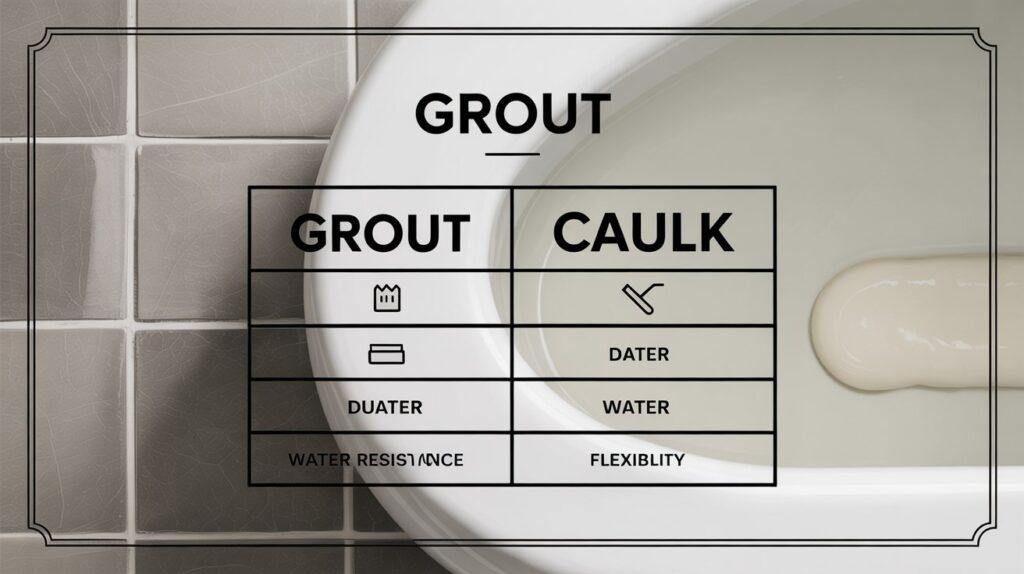
Epoxy Resin
Epoxy resin is a strong and versatile material. It is an excellent alternative to traditional sealants. This resin can bond with various surfaces. It offers a durable and long-lasting finish. Perfect for both small and large projects.
Durability
Epoxy resin is known for its exceptional durability. Once cured, it forms a hard, chemical-resistant surface. This makes it ideal for areas exposed to harsh conditions. It withstands moisture, heat, and heavy wear. This resilience ensures that your projects last longer.
It also resists yellowing and cracking. This keeps the appearance of your projects intact. The resin’s high strength makes it suitable for heavy-duty applications. It can handle high impact and stress without breaking down. Epoxy resin’s durability is unmatched by other sealants.
Project Types
Epoxy resin is suitable for a wide range of projects. Here are some common uses:
- Flooring: Ideal for both residential and commercial spaces.
- Tabletops: Creates a glossy, protective finish for wood and concrete.
- Jewelry: Perfect for creating custom, durable pieces.
- Boat repairs: Offers waterproof and strong bonding for marine use.
- Crafts: Ideal for embedding objects and creating decorative items.
Each project benefits from epoxy resin’s strong bond and long-lasting finish. This versatility makes it a favorite among DIY enthusiasts and professionals alike. Its ability to handle a variety of materials, such as wood, metal, and concrete, adds to its appeal.
Rubberized Coatings
Rubberized coatings serve as an excellent alternative to traditional sealants. These coatings offer flexible and durable protection for various surfaces. They are easy to apply and provide long-lasting results. Many people prefer rubberized coatings because of their versatility and effectiveness.
Protective Qualities
Rubberized coatings create a waterproof barrier. This barrier prevents moisture from penetrating surfaces. They also protect against UV rays, which can damage materials over time. These coatings can endure extreme temperatures, making them suitable for both hot and cold climates. They also resist abrasion and corrosion, adding an extra layer of protection.
Common Applications
Rubberized coatings can be used in many areas. Roofs are a common application. These coatings seal and protect roofs from leaks. People also use them on metal surfaces to prevent rust. Car owners apply rubberized coatings to undercarriages to protect against road salt and debris. These coatings are also popular for sealing foundations and basement walls. They help keep water out and prevent mold growth.
Oil-based Putty
Oil-based putty is a versatile alternative to sealant. It is made from linseed oil and powdered chalk, making it flexible and durable. This material is perfect for various home improvement projects, especially in areas that require a strong and lasting bond.
Characteristics
Oil-based putty is known for its flexibility. It can adapt to slight movements and changes in the materials it bonds. This putty also offers excellent adhesion to wood and metal surfaces. It is long-lasting and resistant to weather changes. Plus, oil-based putty is paintable, allowing it to blend seamlessly with your project’s aesthetics.
Where To Apply
Oil-based putty is ideal for window glazing. It seals glass panes to window frames securely. You can also use it on wooden surfaces to fill gaps and cracks. Metal applications are another option, especially for sealing joints in metal structures. This putty is also useful for patching small holes in various materials around your home.
Latex Caulk
When considering alternatives to traditional sealants, latex caulk stands out. Latex caulk is a versatile, water-based solution perfect for a range of applications. It is easy to apply, dries quickly, and can be painted over. This makes it a go-to choice for many DIY enthusiasts and professionals alike. Let’s delve into its key features and benefits.
Flexibility
Latex caulk offers remarkable flexibility. This allows it to expand and contract with temperature changes. This flexibility ensures long-lasting seals on various surfaces. It is less likely to crack over time, providing durability. This makes it ideal for areas prone to movement, like windows and doors.
Surface Compatibility
Latex caulk is compatible with a wide range of surfaces. It adheres well to wood, drywall, and masonry, among others. This makes it suitable for both interior and exterior projects. Here is a quick reference table:
| Surface Type | Latex Caulk Compatibility |
|---|---|
| Wood | Excellent |
| Drywall | Excellent |
| Masonry | Good |
| Metal | Moderate |
It is important to note that while latex caulk is highly versatile, it performs best on porous surfaces.
Hybrid Sealants
Hybrid sealants are gaining popularity due to their versatile applications. They combine the benefits of traditional sealants with added advantages. This makes them a suitable alternative to pure sealants in many cases.
Combination Benefits
Hybrid sealants offer a unique set of benefits. They blend the strengths of different types of sealants, providing enhanced performance. Here are some key benefits:
- Flexibility: Hybrid sealants are more flexible than traditional sealants. This makes them ideal for areas prone to movement.
- Durability: They tend to last longer. This reduces the need for frequent reapplication.
- Adhesion: They offer superior adhesion to various surfaces. This ensures a strong bond.
- Weather Resistance: Hybrid sealants can withstand harsh weather conditions. This makes them suitable for both indoor and outdoor use.
- Versatility: They can be used on a wide range of materials, including metal, wood, and plastic.
Examples
There are several types of hybrid sealants available in the market. Here are a few examples:
| Product | Application | Features |
|---|---|---|
| MS Polymer | General purpose | High strength, UV resistant |
| Polyurethane Hybrid | Construction | High flexibility, paintable |
| Silane Modified Polymer (SMP) | Marine applications | Waterproof, saltwater resistant |
These hybrid sealants offer a range of options for different needs. Their combination benefits make them a reliable choice for various projects.
Frequently Asked Questions
What Are Natural Alternatives To Sealant?
You can use beeswax or linseed oil as natural sealant alternatives. They are eco-friendly and non-toxic.
Can I Use Glue Instead Of Sealant?
Yes, certain glues like epoxy or wood glue can be used. Ensure it’s suitable for your specific needs.
Is Silicone A Good Sealant Substitute?
Silicone can be an excellent sealant substitute. It is durable, flexible, and water-resistant.
How Effective Is Caulk Compared To Sealant?
Caulk is effective for filling gaps and cracks. However, it might not be as durable as sealant.
Conclusion
Exploring alternatives to sealant opens up many options. Silicone caulk, for example, is flexible and durable. Weatherstripping works well for doors and windows. Spray foam fills larger gaps efficiently. Butyl tape is a handy solution for quick fixes. Each option suits different needs.
Choose based on your specific requirements. Experiment to find what works best for you. Don’t forget to follow proper application methods. This ensures the best results. Happy sealing!

Hi Friends, I’m SealerMrinal, your go-to expert for all things sealing. With years of hands-on experience across a wide range of materials—concrete, wood, metal, and more—I bring deep knowledge and practical insights into every sealing project. On my website, I share expert tips, proven techniques, and product recommendations to help you get the best results. Whether you’re tackling a DIY project or seeking professional-grade advice, I’m here to guide you through the art and science of effective sealing.

